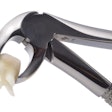Running a dental practice is more than a job; it’s an all-consuming commitment.
You’ve invested years into building something meaningful: a thriving business, a trusted reputation, and a loyal base of patients and staff. But eventually, every dentist reaches a moment when the question shifts from “How do I keep growing this?” to “What comes next for me?”
 Ryan Mingus.
Ryan Mingus.
Whether you’re approaching retirement or beginning to feel the daily grind more than usual, knowing when to consider a transition is one of the most important decisions you’ll ever make. The good news? You don’t have to guess.
After helping hundreds of practice owners navigate the path to a successful sale, we’ve identified five clear signs that it might be time to start the conversation. If you see yourself in one or more of these signs, you owe it to yourself -- and the legacy you’ve built -- to explore your options while you still have full control.
You’re experiencing burnout or are ready for a change
Let’s be honest: running a dental practice today is more demanding than ever. Between managing rising staff costs, dealing with constant supply chain issues, and staying ahead of compliance requirements, the business side of dentistry can easily become overwhelming. And when you add in the emotional weight of leadership (supporting a team, meeting patient expectations, and shouldering all the decisions), it’s no surprise that many owners begin to feel depleted.
For some, burnout takes the form of mental and physical exhaustion. For others, it looks like daydreaming about more time with family, a new professional venture, or even early retirement. Regardless of what’s driving it, that feeling of wanting something different, or something less, deserves your attention.
The important thing to understand is that selling your practice doesn’t have to mean walking away from it entirely. In fact, many buyers in today’s market offer flexible deal structures that let you stay on clinically while stepping back from the operational burdens. You can reduce your schedule, eliminate admin responsibilities, and start monetizing your hard work, all while planning a long-term transition that fits your life.
You want to capitalize on today’s market before conditions shift
If you’ve paid attention to dental M&A trends over the last few years, you know the current market is incredibly favorable for sellers. Valuations are high, competition among dental service organizations (DSOs) and private equity-backed buyers is intense, and well-run practices can command multiple offers, many with clinical autonomy, cash upfront, and favorable long-term incentives.
But markets are cyclical. We’re already seeing signs of change, including tighter deal criteria, rising interest rates, and economic factors that introduce uncertainty into the buyer landscape.
Your practice meets key financial benchmarks
One of the clearest signals it’s time to consider a sale is when your practice hits the financial milestones that buyers are actively seeking. High-performing practices -- those with strong revenue, consistent earnings before interest, taxes, depreciation, and amortization, efficient systems, and reliable patient flow -- are in demand. If you’ve built a business with $1.5 million or more in annual collections, a solid hygiene program, and clean financials, your practice may be worth more than you realize.
What makes a practice truly marketable is not just the top-line revenue, but the systems in place that ensure long-term, predictable cash flow. A well-run staff, high patient retention, and operational consistency all contribute to a higher valuation.
Even if you’re not ready to sell tomorrow, understanding how your practice stacks up against industry benchmarks can be a game changer. A professional valuation provides insight into your current position and can uncover areas where small improvements (reducing overhead, optimizing scheduling, or enhancing collections) could drive an increase in your future exit value.
If you're considering selling within the next two to five years, acting now can put you in the driver’s seat. Starting early gives you the benefit of time, leverage, and the ability to compare offers before the market shifts.
You want out of the day-to-day management but still love clinical work
For many dentists, the joy of the job comes from patient care, not managing staff, dealing with payroll, or worrying about marketing and insurance negotiations. If you still love dentistry but dread the constant administrative weight that comes with ownership, it might be time to consider a change in structure.
The modern DSO model is built to relieve those pressures. In the right partnership, you can retain full clinical autonomy while letting someone else handle human resources, compliance, and operations. This isn’t about quitting, it’s about reclaiming the part of the profession you love most while gaining financial and lifestyle flexibility that can come with a well-structured deal.
Tusk has helped dentists transition into roles that let them practice dentistry without the business burden. They work fewer hours, have more predictable income, and can focus entirely on the patient experience without the constant stress of running a company.
You want control over the timing, structure, and outcome of your exit
Perhaps the most overlooked but critical reason to consider selling your practice proactively is this: The best outcomes come to those who prepare ahead of time. If you wait until you're forced to sell due to health issues, burnout, or market decline, you lose the ability to plan, position, and negotiate from a place of strength.
When you start early, you can shape every aspect of your exit. You can evaluate multiple buyers, compare offers and deal structures, and select the partner who best aligns with your personal and professional goals. You can work with your financial adviser to minimize tax burden, decide your own timeline, and protect your team from any surprises.
Waiting too long often leads to rushed decisions, reduced valuations, and limited flexibility. Selling from a position of strength while your dental practice is thriving and your options are open is how you maximize the outcome of the business you’ve spent your life building.
The bottom line: Start the conversation before you have to
Selling your dental practice isn’t about giving up. It’s about being intentional with what you’ve built and ensuring the next chapter brings as much reward as the journey that got you here.
If you’re nodding along to any of the signs above, you don’t need to make a commitment. But you do owe it to yourself to explore your options. A confidential dental practice valuation, a deal structure analysis, or even a short conversation with someone who understands the M&A landscape can open doors you didn’t know were there.
Ryan Mingus is managing director of Tusk Partners and has more than 12 years of sales and leadership experience in the dental and healthcare industry, most recently as the business development director for strategy and optimization at Align Technology Inc. Mingus earned his bachelor's degree in economics and business from the Virginia Military Institute and his Master of Business Administration from the University of San Diego. He also held the rank of captain in the U.S. Army National Guard.
The comments and observations expressed herein do not necessarily reflect the opinions of DrBicuspid.com, nor should they be construed as an endorsement or admonishment of any particular idea, vendor, or organization.



















